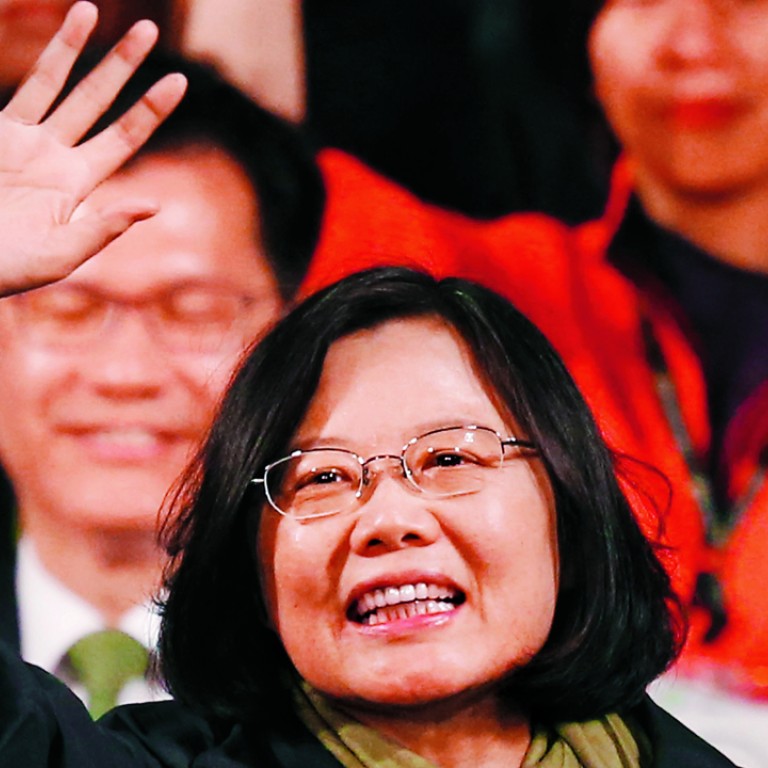
Don’t make us suffer even more, Taiwanese businessmen on Chinese mainland tell president-elect Tsai Ing-wen
Mainland-based Taiwanese businessmen have expressed fears cross-strait economic relations could be harmed by the incoming pro-independence Democratic Progressive Party government
Taiwanese businesspeople based on the mainland fear cross-strait economic relations could be harmed by the incoming pro-independence Democratic Progressive Party government.
Struggling to survive amid the mainland’s slowing economic growth and increasingly stiff competition, they are concerned by president-elect Tsai Ing-wen’s pledge to cut the island’s economic reliance on the mainland after she assumes office on May 20.
“As businesspeople based on the mainland, we cannot help but worry about the prospect of cross-strait relations, given the DPP’s pro-independence platform and Tsai’s refusal to recognise the 1992 consensus,” said Yeh Chun-jung, vice-chairman of the Association of Taiwan Investment Enterprises on the Mainland.
The consensus was an oral agreement between semi-official representatives from the mainland and Taiwan that both sides belong to “one China”, but it leaves open to interpretation what one China is.
Tsai swept to a landslide victory in the January 16 presidential election, ending eight years of Kuomintang rule in Taiwan under Ma Ying-jeou.
Ma had adopted a policy of engagement with Beijing, which led to warming cross-strait relations and the expansion of economic exchanges. Beijing insists that peaceful development of relations can continue only if the 1992 consensus is recognised.

“With production costs on the mainland continuing to rise and economic growth in China less shiny than before, any plan by the DPP government to reduce economic reliance on the mainland will make us suffer even more,” said Guangzhou-based businessman Shen Heng-chiang.
The mainland reported gross domestic product growth of 6.9 per cent last year – down from 7.4 per cent in 2014 – and many economists predict further weakening this year.
There are 1 million Taiwanese businesspeople and 100,000 Taiwan-invested businesses on the mainland. Official statistics show about 40 per cent of Taiwan’s exports go to the mainland.
Ding Kun-hua, honorary chairman of the Taiwan investment association, said it would be difficult for Tsai to shift the island’s focus to the south of the region because the mainland was too big to ignore.
“Actually there is nothing new in Tsai’s planned southbound policy as Lee Teng-hui proposed this in 1992 when he was president,” said Ding, adding the policy had been unsuccessful.
There were frequent reports of campaigns against ethnic Chinese in Southeast Asian nations such as Vietnam, Malaysia, Indonesia and Cambodia, Ding said, and these had seriously affected Taiwanese investors’ interests.
He said Taiwan should work towards completing the Economic Cooperation Framework Agreement, a semi-free-trade pact signed with the mainland in 2010, as this would help increase the island’s competitiveness.
Hu Hsing-chung, vice-chairman of the Shanghai Association of Taiwan, said Tsai Ing-wen should not forsake Taiwanese businesspeople based on the mainland.
“It should help Taiwanese firms tap business opportunities through the mainland’s ‘One Belt, One Road’ initiative for infrastructure development projects,” Hu said.

